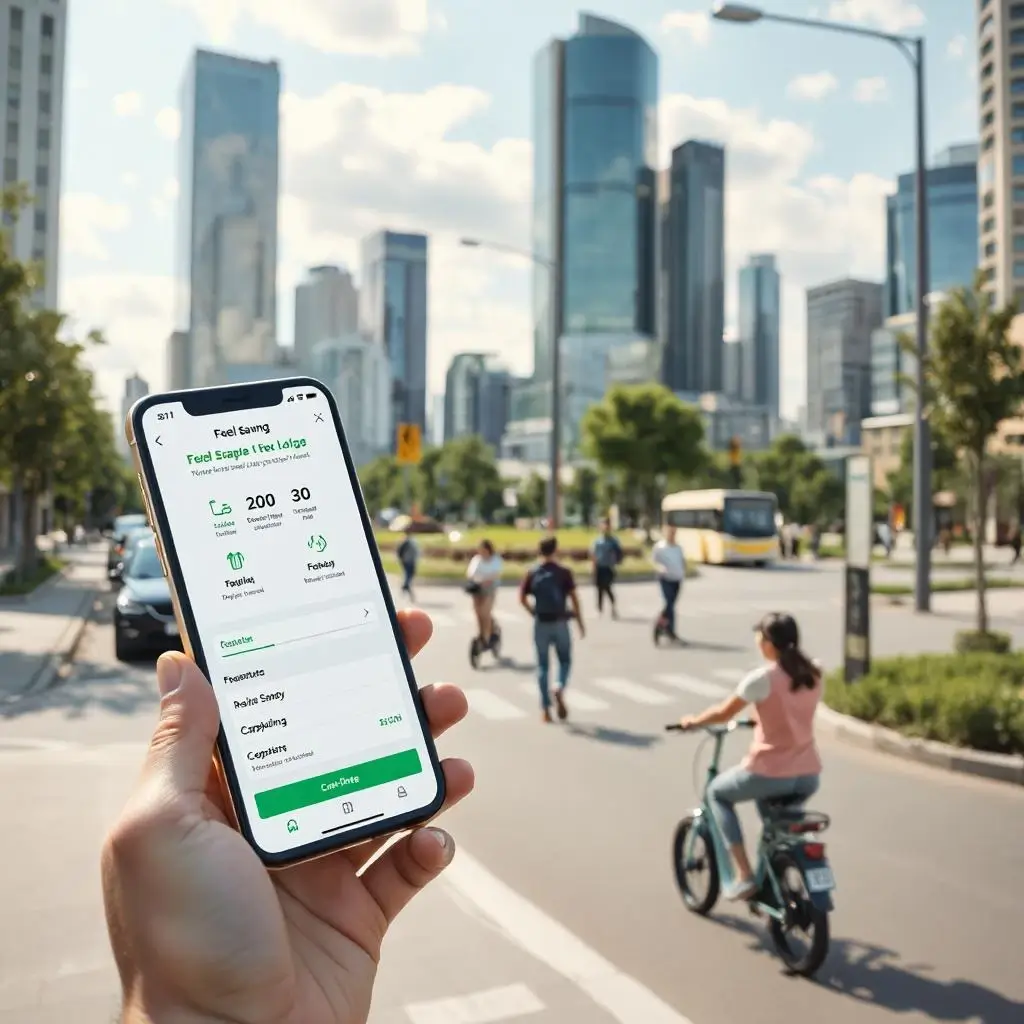1. Introduction
- Reducing car usage is one of the most effective ways to lower fuel consumption, cut emissions, and save money. With the rise of mobile applications, drivers now have access to tools that help optimize fuel efficiency, plan smarter routes, and explore alternative transportation options.
- This article explores various apps that assist in reducing fuel consumption, providing drivers with practical ways to cut down on car usage without sacrificing convenience.
2. The Importance of Reducing Car Use
Environmental Benefits: Lower emissions mean a reduced carbon footprint and improved air quality.
Financial Savings: Spending less on fuel results in significant cost savings over time.
Traffic Reduction: Fewer cars on the road reduce congestion and improve commuting times.
Vehicle Longevity: Less wear and tear leads to lower maintenance costs and a longer vehicle lifespan.
Health Benefits: Using alternative transport methods like walking and biking promotes a healthier lifestyle.
3. Fuel-Saving Navigation Apps
Google Maps: Offers real-time traffic updates and the most fuel-efficient routes.
Waze: Provides driver-reported road conditions, helping avoid congestion.
TomTom GO Navigation: Suggests optimized routes based on historical traffic data.
HERE WeGo: Offline navigation with a focus on efficient travel planning.
Fuelio: Tracks fuel consumption and mileage for better driving habits.
4. Ride-Sharing and Carpooling Apps
UberPool & Lyft Shared Rides: Connects riders heading in the same direction to reduce trips.
BlaBlaCar: Matches long-distance travelers for cost-effective ridesharing.
Waze Carpool: Enables daily commuters to share rides and split costs.
GoCarma: Rewards carpoolers with toll discounts and incentives.
SPLT: Focuses on corporate carpooling for business employees.
5. Public Transport Apps for Reducing Car Dependence
Moovit: Real-time updates on public transit schedules and routes.
Transit: Combines bus, train, bike, and ride-sharing data in one app.
Citymapper: Multi-modal transport planner for urban commuters.
Rome2Rio: Provides global travel options combining multiple transport modes.
OneBusAway: Real-time bus tracking for a seamless transit experience.
6. Bike-Sharing and Micro-Mobility Apps
Lime: Electric scooters and bikes for short-distance travel.
Bird: App-based electric scooter rentals for urban mobility.
Nextbike: A global bike-sharing service with thousands of stations.
Spin: Affordable dockless scooter rentals for city commutes.
Jump (by Uber): Offers pedal-assist e-bikes for quicker rides.
7. Eco-Driving and Fuel Efficiency Apps
Drivvo: Tracks fuel consumption and maintenance costs.
Fuelly: Monitors gas usage and recommends fuel-saving strategies.
GasBuddy: Finds the cheapest fuel stations along your route.
ecoDriver: Provides real-time feedback on driving habits.
MileIQ: Logs mileage and fuel usage for better efficiency analysis.
8. Apps for Remote Work and Virtual Meetings
Zoom: Reduces the need for commuting with virtual meetings.
Microsoft Teams: Provides a platform for remote collaboration.
Google Meet: Easy-to-use video conferencing for businesses.
Slack: Enhances team communication without physical meetings.
Trello: Project management tool that helps eliminate unnecessary travel.
9. Car Rental and Subscription Apps
Zipcar: Short-term car rental service for occasional use.
Turo: Peer-to-peer car sharing for flexible vehicle access.
Getaround: Rent cars from local owners instead of owning a vehicle.
HyreCar: Allows gig workers to rent cars for rideshare driving.
Maven: Offers short-term car rentals with fuel and insurance included.
10. EV Charging and Alternative Fuel Apps
PlugShare: Maps out EV charging stations worldwide.
ChargePoint: Helps electric vehicle owners locate charging spots.
A Better Routeplanner (ABRP): Plans efficient EV road trips.
Alternative Fuel Locator: Identifies stations for biodiesel, hydrogen, and ethanol fuels.
EVgo: Provides a network of fast-charging stations across the country.
11. Cost Comparison: Traditional Driving vs. Alternative Transport
| Feature | Traditional Driving | Public Transport | Carpooling | Bike & Scooter |
| Fuel Costs | High | Low | Shared | None |
| Carbon Emissions | High | Medium | Low | Zero |
| Traffic Impact | High | Low | Medium | None |
| Convenience | High | Medium | Medium | High |
| Cost Savings | Low | High | High | High |
12. Challenges and Considerations
Availability of Alternative Transport: Not all areas have efficient public transit or bike-sharing options.
Initial Learning Curve: Adapting to apps and planning alternative travel may take time.
Cost of Smart Mobility Services: Some premium mobility services may still have fees.
Public Transport Scheduling Issues: Delays and limited routes may impact convenience.
Privacy Concerns: Some ride-sharing and navigation apps collect location data.
13. Future of Smart Mobility Apps
AI-Driven Traffic Predictions: Smarter route planning with predictive data.
Integration of Ride-Sharing and Public Transit: Apps will offer seamless multi-modal trips.
Expansion of Electric Car Rentals: More rental services focusing on electric and hybrid vehicles.
Autonomous Ride-Sharing Vehicles: Self-driving cars reducing emissions.
Blockchain-Based Fuel Tracking: Transparent and accurate carbon footprint analysis.
14. Conclusion
Using mobility apps to cut down on car usage is a smart way to save fuel, reduce emissions, and lower transportation costs. Whether through carpooling, public transit planning, bike-sharing, or fuel-tracking tools, drivers have numerous options to make their travel more efficient and eco-friendly.
By embracing digital tools and alternative transportation, individuals can contribute to a greener, more sustainable future while still enjoying convenience and mobility.
Disclaimers
Fuel savings and cost estimates depend on driving habits and regional fuel prices.
Availability of apps and services varies by location.
Privacy policies should be reviewed before using navigation and ride-sharing apps.
Some smart mobility solutions may require initial investment or subscriptions.
The effectiveness of fuel-saving apps depends on user adoption and proper usage.
Author: Dipika Kumari
Publication Date: 27-03-2025
Email: [email protected]
